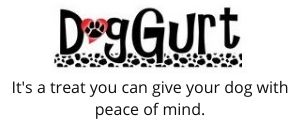- Do you subscribe to Dharma Dog Training’s Newsletter? You should.
- A Unique Campaign from The Humane Society of the United States
- Rabid bats in Omaha- Stay safe, prepared with these tips
- Springtime Activities in Omaha
- Mill Dog Monthly from Bailing Out Benji
- World Spay Day, Legislative Alert in Nebraska
- Attend the Nebraska Rescue Council’s monthly meeting this Saturday
- Five Hard-to-Ignore Reasons to Adopt!
- Paws in Pink to Benefit Breast Cancer Foundation
- VCA, Inc. Acquires MidWest Vet Specialists from Kansas State University
Doggie DNA – why it’s important to know your pup’s bloodline

Wherever you got your dog from (a shelter, a rescue, a friend or family member, etc.) it may be important to you to know your dog’s heritage. Knowing your dog’s breed can help you better prepare for any health requirements, help you understand what medical tendencies your breed develops, and may give you a needed heads-up related to legal and city codes. Luckily, there are services out there that can help you nail down just who/what your pup is.
An example of how determining your doggie’s DNA can help with what to expect medically: larger breeds (Boxers, Rottweilers and German Shepherds) are prone to hip dysplasia and may require surgeries or more activity in later years. And another: dogs with squashed faces (French Bulldogs, Pugs and American Bulldogs) have a tendency to develop breathing problems.
On the legal front, some states, counties, and even countries have specific requirements for owning certain breeds. In Omaha and Blair, Pitbull and bully-mix breeds are restricted. In Council Bluffs, they’re banned altogether. This means owners are required to have the dogs muzzled and on a leash at all times, unless they are in a private fenced yard in places like Omaha.
Finding out your dog’s lineage can be easily done using at-home DNA tests. Most at- home DNA kits only require the purchase of a package and a swab of doggie saliva. Depending on how much information you want to know about your dog, doggie-DNA kits can cost anywhere from $80-$200.
Here are a couple of the most popular doggie-DNA tests out there:
1. Embark- Best for determining health problems
Embark is based on science and tests for several different kinds of evidence, including:
- 150 out of 187 breeds recognized by the American Kennel Club (AKC)
- Genetic mutation testing for over 160 canine health conditions
- Free replacement swabs if yours is damaged
- Live chat or e-mail if you need help interpreting results
- Extra resources on their website about breeds or health conditions
- Results come in six-to-eight weeks
Embark also gives back to the community in more than one way. First, they have partnered with scientists from Cornell University’s College of Veterinary Medicine to continue research on genetic dog testing. Second, they fund genetic testing for shelters in the U.S. and Nepal. This test has the highest positive customer feedback of the three highlighted here.
The kit costs $200, but not only are you getting to know your dog, you’re helping other animals.
2. Wisdom Panel Review- Best for figuring out your dog’s specific breed
The Mars Veterinary’s Wisdom Panel is licensed through Washington State University and has three different versions. One big difference between Wisdom Panel and the others is that you can choose to run the test as a mixed-breed or a designer/purebred. With Wisdom you get:
- A test that covers 178 out of 180 breeds recognized by the AKC
- Tests for two inherited health conditions- MDR1 and Exercise-Induced Collapse
- Phone and e-mail customer service for any questions
- Extra website resources on doggie DNA testing
- Comes with a set of two swabs plus a replacement swab if needed
- Results take about three weeks
If you are more interested in finding out what breed your dog is, than the Wisdom Panel kits are for you. Wisdom Panel 3.0 and 4.0 cover over 1,800 genetic markers while 2.0 screens 321. It’s the second most affordable option ranging from $72-85, depending on the version you choose.
3. DNA My Dog- Discovery on a budget
DNA My Dog offers three tests and is the third at-home DNA test. Their standard DNA test costs about $70 and includes:
- Testing for 84 breeds
- Get the results in two weeks
- Custom certificate with your dog’s photo and DNA composition
- Phone and e-mail customer service
- Comes with two swabs and a free replacement
DNA My Dog also donates a percentage of each test to North American shelters and rescues to help continue their work. DNA My Dog also offers a test to determine a deceased dog’s DNA using items the dog was in contact with ($157). A third test claims to determine if your dog has traces of wolf or coyote blood in their lineage ($90). But beware of the budget kit. There are several customer complaints about delayed results and the accuracy of the tests.
Also, beware of any DNA testing service that asks you to send a photo of your dog. The photo may allow them to make assumptions based on looks rather than science.
Have you tried any of these services? We’d love to hear what you gained (or felt you didn’t). Let us know by using our Contact form or commenting on social media.
Related Posts
Latest News
-
What Signs to Look For When My Pet Has a Cold
You have probably heard the expression, “sick as a dog.”...
- Posted 2 weeks ago
- 0
-
How Often Should I Groom My Pet?
Do you have a grooming ritual for your furry friend?...
- Posted 3 weeks ago
- 0
-
From Kibble to Cuisine: Finding the Perfect Food For Your Pet
Do you ever wonder what the difference is between regular...
- Posted 1 month ago
- 0
-
The Essential Guide to Pet Care: Meeting Your Furry Friends Basic Needs
Are you a first-time pet owner and need to know...
- Posted 1 month ago
- 0
-
Say Cheese! Tips for Keeping Your Pet’s Pearly Whites Clean
Did you know that keeping your dog or cat’s teeth...
- Posted 2 months ago
- 0
-
Feeding Frenzy: How Often Should You Fill Your Pet’s Bowl?
Are you unsure how much food to give your dog...
- Posted 2 months ago
- 0
-
How to Prepare Your Pet for Spring
Winter is in full force, but spring will be here...
- Posted 2 months ago
- 0























You must be logged in to post a comment Login